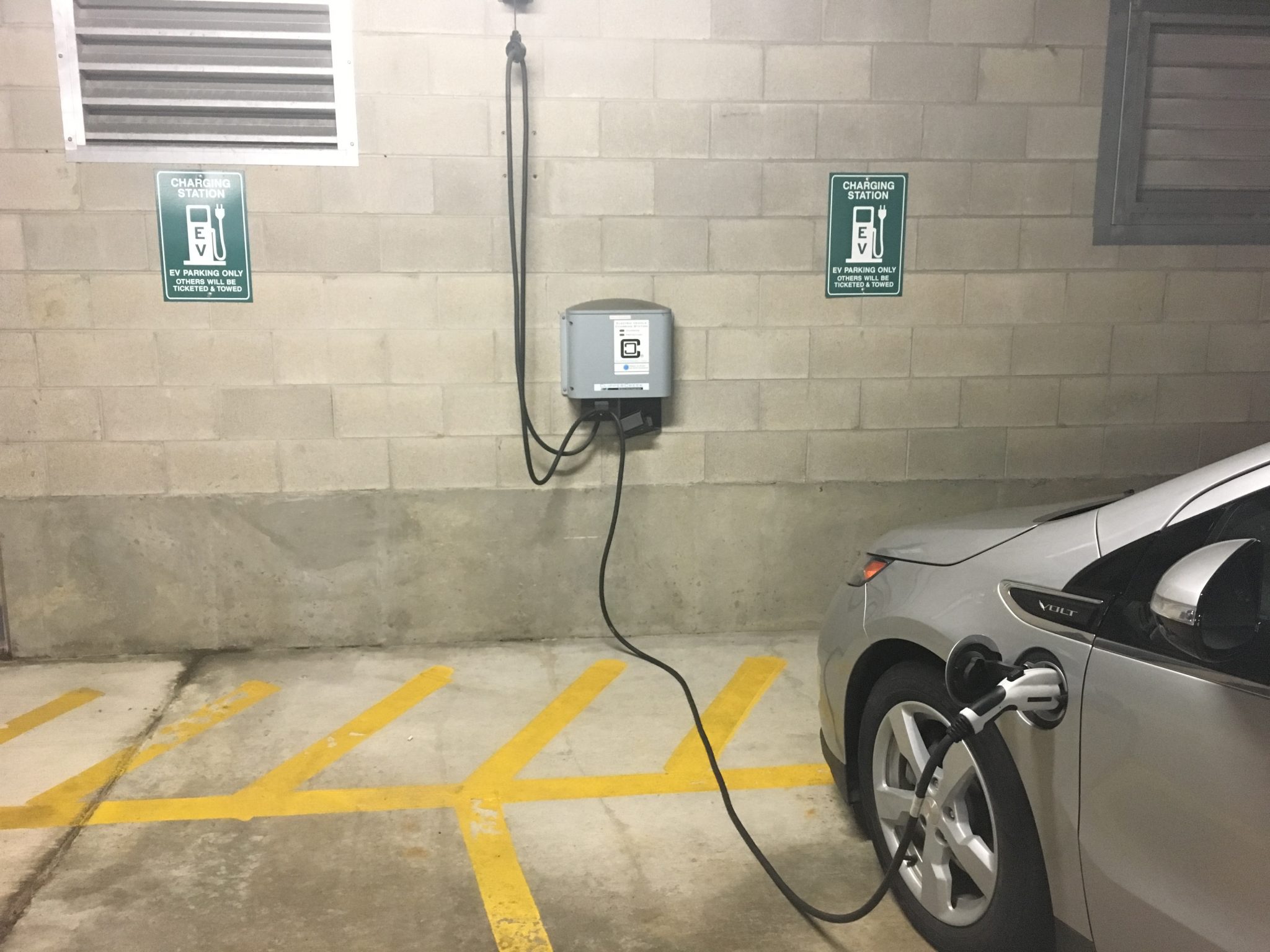Infrastructure and Reconciliation Bills Could Have Big Impact on Electric Vehicles in Michigan
State Sen. Mallory McMorrow, co-chair of the Michigan Legislative Automotive Caucus, says now is the time to “jump-start” the switch to EVs.

The United States will have to significantly grow its infrastructure for electric vehicles to keep up with the electrification goals touted by major automakers.
It seems like the more we hear about the negotiations in Congress over the infrastructure bill and the Build Back Better reconciliation package, the more the initiatives and actual policies that make up those bills get lost in the sauce. One of the things that people might lose track of is what both of these packages might mean for the auto industry, especially for the huge switch to electric vehicles that car companies are starting to get serious about now.
As part of the weekly series MichMash, hosts Jake Neher and Cheyna Roth talk with state Sen. Mallory McMorrow (D-Royal Oak) about what the legislation could mean for electric vehicles.
Subscribe to MichMash on iTunes, Spotify, Google Podcasts, NPR One or wherever you get your podcasts.
McMorrow was appointed to Gov. Gretchen Whitmer’s Council on Future Mobility and Electrification, and she’s the co-chair of the Michigan Legislative Automotive Caucus. McMorrow calls the auto industry Michigan’s “signature industry” and says the state is “at a turning point now, where the entire industry is shifting, and shifting rapidly” toward electric vehicles.
“I equate this to when we went from horses and carts to cars for the first time,” she says. “We are now at that transformational point again.”
“And if we don’t lean in and position ourselves to catch up to where the industry is going, we’re going to lose it not only to other states, but to China, who is investing very, very heavily in electrification, and wants to get into selling in the United States. So, this is our moment.”
McMorrow says the bills in Congress would “jump-start” what’s already being attempted in Michigan. She says, when it comes to figuring out how to move forward with electric vehicles in Michigan, it all comes down to deciding whether we need the vehicles first or the infrastructure. And McMorrow says the cars are there — it’s time for the infrastructure.
The spending bills would add a network consisting of hundreds of thousands of new charging stations along roads and highways by 2030.
“So that it is as easy as it is to pull off the side of the road to a gas station right now that we don’t even think about when we go on road trips,” she says. “That public infrastructure, if you want to take a trip, if you want to go up north, is really going to ensure that this is easy and accessible for everybody.”
More from MichMash:
Benton Harbor’s Water Crisis Finally Starting to Get More Attention After Three Years
It’s Time to Tell Michigan’s Redistricting Commission What You Think of Their Draft Maps
Michigan Falling Behind Other States, Countries in Ending ‘Period Poverty’
Biden Stays Silent on Line 5 as Efforts to Shut It Down Become More Complicated
Trusted, accurate, up-to-date.
WDET strives to make our journalism accessible to everyone. As a public media institution, we maintain our journalistic integrity through independent support from readers like you. If you value WDET as your source of news, music and conversation, please make a gift today.

